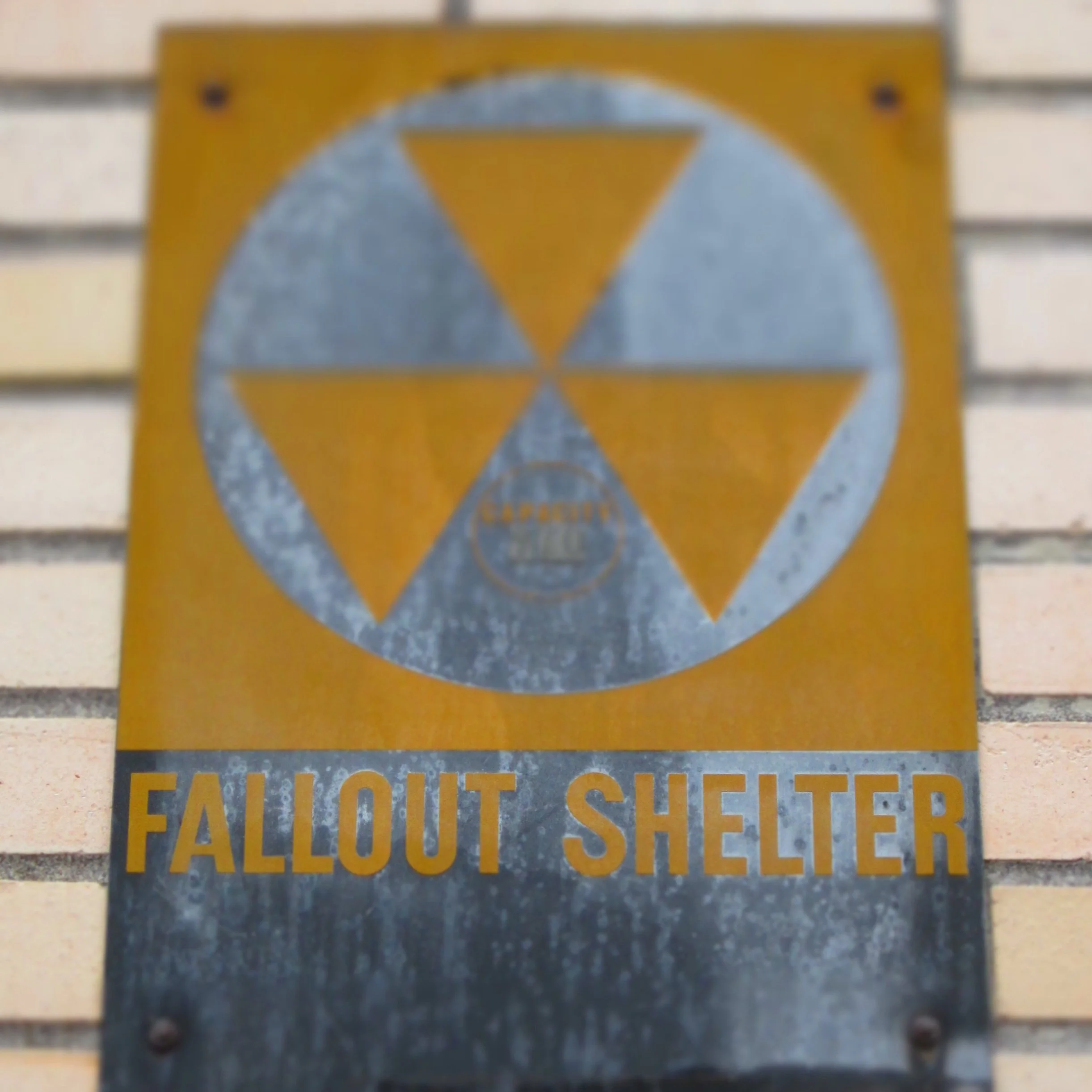In Case of Rapture, Check Closet
In the upstairs closet, I’ve got an enormous plastic tub of old diaries and journals. Sifting through them, as I do a few times a year when I’m feeling nostalgic or self-indulgent, is a complete trip. I faithfully chronicled the vicissitudes of my childhood, adolescence and early adulthood, with questionable accompanying illustrations, and this record of my life feels immeasurably precious to me.
Right around the time I got married, however, the chronicle dropped sharply off, slowing to the pace of liquid amber down some existential drain spout.
I used to fill up multiple journals yearly. Now, I’ve been working my way through the same solitary robot-print cloth diary (purchased at a garage sale for $1) since 2015. Which seems nuts, cause my entire life has happened since then!
Marriage, two kids, career change, a whole lotta painful growing up I’d rather have skipped.
In my own defense: I do keep a one-line-a-day diary fairly faithfully for my kids. But that’s about it.
The precipitous decline in journaling isn’t what it seems, however.
I didn’t abandon my lifelong habit of compulsive record-keeping. I just migrated the impulse to digital realms, as so many of us have done: My Instagram account, dozens of Word document idea buckets, multiple blogs and websites (like THIS one!), email caches chronicling the rise and fall of countless relationships, jobs, and personal obsessions.
And my smartphone. Always the smartphone. I do about 75 percent of my writing on its minuscule keyboard, so it’s got much of the best recent stuff.
This shift causes me dismay in a way that’s hard to put to words: I write far more now than I ever did when I was constrained to pen and paper, but it’s ephemeral, diffuse, stored here and there, and owing to technological glitches and that pernicious problem of User Error, things sometimes get lost entirely.
I mean, I recognize that everything teeters on obsolescence, always. A diary can be tossed into a fireplace just as easily as a smartphone can be dropped in a toilet.
But for me, the risk feels more real when the bulk of your life’s work can no longer be held in the hands or viewed without the assistance of a very particular generation of technological tools, not to mention the proper permissions and passwords.
In pondering the merits and demerits of the cosmic gamble involved, I’ve come up with the Rapture Test.
It’s a simple thought experiment: if I turned to vapor tomorrow — Poof, got sucked up into the firmament and vanished, as promised by Biblical Rapture prophecies — what remnants would be left of me and my writing down here on earth?
How much of what I’ve done would accessible or at least excavatable, should anybody care? Easily stumbled upon or hunted down?
If at least a quarter of my work stands a chance of outlasting me, I’ve passed the Rapture Test.
If it’s less than, that I’ve flunked it.
Most of the time nowadays, I flunk, as most of us probably would.
When we transition our writing from analogue to digital form, whatever we gain by way of convenience we sacrifice in terms of raw beauty and simple Thereness.
I’m not saying the trade isn’t worthwhile or even inescapable. Just that it presents a kind of psychic danger.
My question to you: would your body of work pass the Rapture Test? Or would it flunk fantastically?
And how much does that matter to you?
A return to paper journaling feels impractical and inconvenient (we’re in too deep) but also somehow increasingly appealing (there’s much at stake.)
Not because digital memorializations of our lifetimes are somehow inferior, but because they are more fragile, more forgettable.
And if the rapture does come, and in the unlikely event that I go and you stay, and if you’re at all interested, here are the instructions: You can find my gray tub of finished journals in the upstairs office closet beneath a pile of old purses, while the top lefthand drawer of my desk holds a mess of half-finished diaries.
The essential contents of my laptop are printed out once a year and stored in the top drawer of the white filing cabinet next to the desk, all my secrets and most sincere efforts, contained therein.
If you want, have a read.
If not, no biggie. Seeing as I’ll have been rapturized or maybe just liquidated, I won’t much care either way.
As for the smartphone, you’ll probably need to chase me into the firmament and pry it from my cold, ethereal fingers. And then you’ll need to figure out the password — Quick! Before the battery dies!
For good or bad, all the best stuff will be hidden there.





